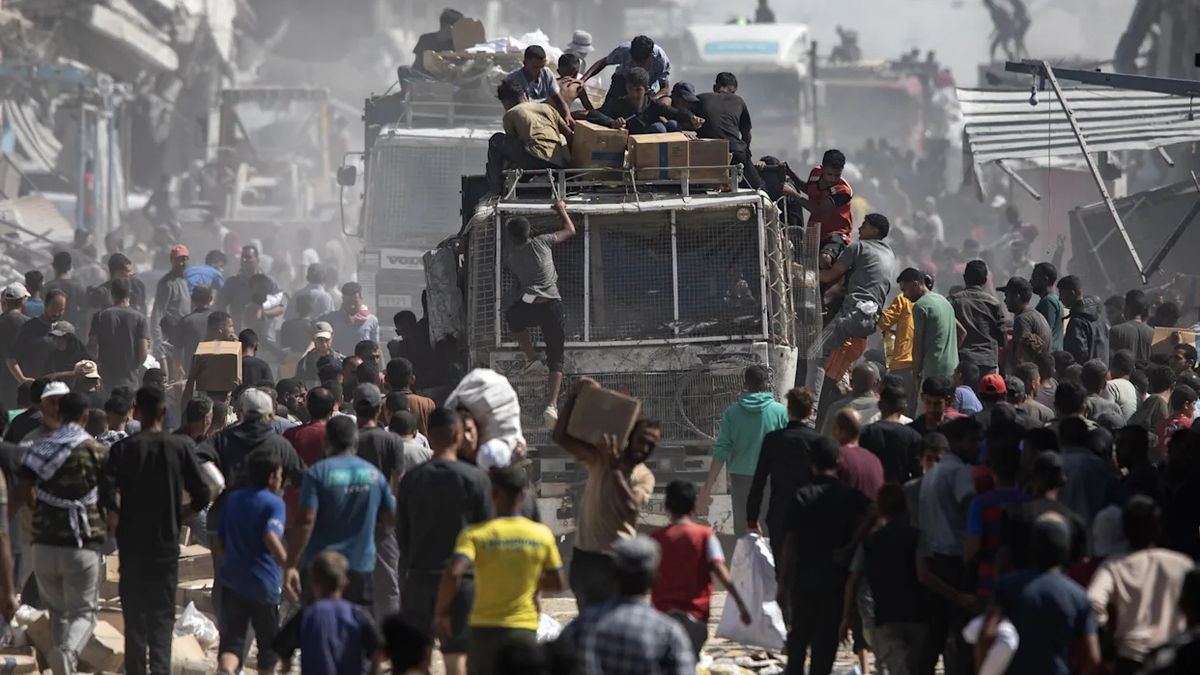Military chiefs from South America and the United States are evaluating the main threats to the region in Santiago de Chile since Tuesday. Chairman of the Joint Chiefs of Staff, Brigadier General Xavier Isaacwill participate in the South American Defence Conference (Southdec 24) a meeting of senior officials that broadly proposes sharing experiences, identifying better solutions to common threats and strengthening cooperation between States.
Southdec, organized and sponsored by the United States Army Southern Commandhas been held every year since 2009. This time the host is the Chilean Joint Chiefs of Staff headed by Vice Admiral Pablo Niemman. He will give welcoming remarks, as will the General Laura Richardsoncommander of the Southern Command, and General Charles Brown, chief of staff of the United States Air Force.
The two-day session at the Marriott Hotel from 27 to 29 August will first be a review of the conclusions of last year’s meeting, which focused on regional threats, cyber defence, climate change, environmental protection, and preparing forces to respond to crises arising from global climate change.
The formal start will take place after an update of defense policies for South America in charge of Jana Nelsondeputy assistant secretary of defense for western hemisphere affairs at the Pentagon. She is the senior advisor on security and defense policy for the thirty-four-nation region encompassing Canada, Mexico, Central America, the Caribbean and South America.
Limiting the military projection of the country continues to be a matter of rigor. Beijing and also from other powers that rival and challenge the United States’ interest in the hemisphere, such as the Russian Federation and Iran.
In that vision, a splinter from the same stick constitutes the Maduro’s Venezuela and the socio-political crisis that poses risks to countries in the region following the latest elections, the results of which have not been recognized by a large number of countries, including Chile. Threats that are attributed to the presence in Venezuelan territory of sleeper cells capable of asymmetric attacks: terrorism, guerrillas, incitement to civil disobedience, malicious digital intervention (cyberattack) and others.
In response to this, the Southern Command has been deploying a series of institutional contact mechanisms for decades. “m to m” (military to military)the case of Southdec, with the purpose of strengthening coordination, interoperability, standardization of procedures, and cooperation in defense and security of the United States with regional countries.
Preparing for action in plain language
In this edition of Southdec the focus is on cyber defense with an emphasis on AI (Artificial Intelligence)threats in the digital domain, “back doors” that put the information of States and citizens at risk with destabilizing effects.
Argentina through the Minister Luis Petri Last March, the US signed an agreement on cyber defense with the United States, represented by Ambassador Marc Stanley, as a result of political continuity in this area that had begun under the previous government. In practice, the first milestone was the sending of an American cyber expert. The process was attended by the Secretary of International Affairs of the Ministry of Defense, then in charge of Francisco Cafiero.
The state of affairs: In January 2022, the note sent by the US defense attaché office in Buenos Aires reads, Colonel Steven Winkleman, To Secretary Cafiero: “In accordance with what was discussed with you in due time, it was possible to move forward with the request for funds so that a specialist in the area of cyber defense can remain in your country for a period of two years, developing academic teaching and training activities as well as advising on related issues within the jurisdiction of the Ministry of Defense.”
U-007-22 SDO to Cafiero – Cibersec.pdf
Another point of interest in Southdec 24 Within the AI table, machine learning is used to provide computers with the ability to identify patterns in massive amounts of data and produce predictive analysis and strategic forecasts in the military world.
Another field of AI to discuss is Data AnalyticsAdvantages of analyzing large data sets with the aim of extracting valuable information in military applications, whether for intelligence or decision-making in complex scenarios or identifying risk and threat patterns in digital communication, emails, txt messages, social networks, digital platforms, media, etc.
Strengthen scanning, speed up detection and improve the ability to recognize anomalies in progress to potential threats. Activities that require hardware and software in addition to training, coaching and sharing exchange networks plus electronic devices that allow timely reaction to cyber attacks.
Source: Ambito
I am Pierce Boyd, a driven and ambitious professional working in the news industry. I have been writing for 24 Hours Worlds for over five years, specializing in sports section coverage. During my tenure at the publication, I have built an impressive portfolio of articles that has earned me a reputation as an experienced journalist and content creator.




